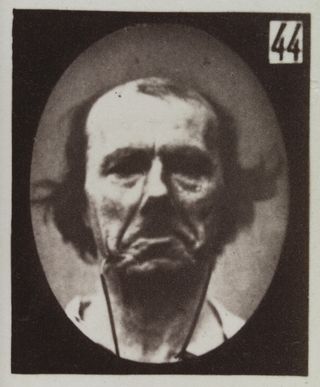
The history of emotions is a growing field. It has an agenda that psychologists should note well. Historians are sensible of certain shifts in psychological research (developmental psychology, social psychology, and social and cultural neuroscience) that have given rise to questions typically answered by the humanities. So long as psychology considers culture to be a dynamic part of brain development and/or emotional/affective experience, then historians and anthropologists will lay claim to theoretical and methodological expertise about how to deal with how culture is operationalized in psychological research. With any luck, the emerging overlap of our respective research interests will lead to new collaborations and new questions. But before that can happen, the world of psychology would benefit from an understanding of what historians of emotions, senses, and experience are doing and why it matters.

In A History of Feelings, I try to address this. The book ranges from Homer’s Iliad to the contemporary politics of “happiness,” having at its core the idea of emotional or affective historicism. Experience is, ultimately, situated, contextually contingent, mutable. The book makes this claim by focusing on discrete historical episodes, aiming to reconstruct specific historical experiences in all their temporal and cultural specificity. In order to give a flavour of this approach, and to highlight the importance of emotional historicism for the work of psychologists, I will show the pitfalls of trying to track one particular emotion over time: disgust.
In a much studied and famous passage in Plato’s Republic, the character Leontius finds himself battling an unwanted desire to look at dead bodies, dumped outside the city walls by the Athenian executioner. Modern scholarly attention on this passage has placed Leontius’ fury at himself into the context of discussions about disgust, even going so far as to identify a Greek word for “disgust.”
In the following excerpt from A History of Feelings, I offer a substantial critique:
Let us look with Socrates at this gruesome feast for the eyes and the difficulties of understanding ancient desire. In the translation of Plato’s Republic that I have read most often—the text with which I have taught—the passage in question (439e–440a) reads as follows:
'Leontius, the son of Aglaeon, was on his way up to town from the Piraeus. As he was walking below the north wall, on the outside, he saw the public executioner with some dead bodies lying beside him. He wanted to look at the bodies, but at the same time he felt disgust and held himself back. For a time he struggled, and covered his eyes. Then desire got the better of him. He rushed over to where the bodies were, and forced his eyes wide open, saying "There you are, curse you. Have a really good look. Isn’t it a lovely sight?"'1
The passage occurs as part of a discussion of how the soul is divided between the rational, the spirited and the desiring. Socrates uses the example to show how anger (ὀργὴν – orgen) allies with reason to wage war on the desires. It occurs "whenever people are forced into doing things by their desires against the advice of their reason—when they curse themselves, and are furious with the bit of them which forces them to do these things. It’s as if there’s a civil war going on inside someone like this, with spirit acting as an ally of reason."
The formulation of Leontius can, therefore, be rendered thus: Reason says, do not look at dead bodies, turn away; desire says, look at dead bodies; spirit angrily chastises the whole self for having given in to desire. If this is accurate, and I do not see any great dispute about this, then the reference to disgust seems odd, out of place, and difficult to reconcile with the divisions of the soul as presented. After all, the part of Leontius that has him wanting to recoil is his reason, which is set at odds with his desire to see. In the Greek, he is said to be "at the same time desirous [ἐπιθυμοῖ – epithumoi] to see and unable to endure [δυσχεραίνοι – duskherainoi], turning himself away."
The word here that gets translated as disgust is δυσχεραίνοι (duskherainoi), which might denote a kind of distress, but which I give here as ‘unable to endure.' In the way the argument is set up by Socrates, the part of Leontius that cannot endure and turns away is reasonable, not part of his thumos or spirit. Something like ‘emotion’ only arises when his spirit is activated in anger against his desire to see dead bodies. He is struggling, at war with himself, yes, but the struggle is between reason and desire. What this tells us is that there is a cultural script running for Leontius that proscribes the desire to gawk at the dead. It is unreasonable to do so. Yet the desire is too strong and wins out. The expression, of himself to himself, of that cultural script, manifests in anger. There is, in short, no disgust in this scene at all, let alone a ‘paradox of disgust’ as Lateiner and Spatharas put it.2
While there are countless contemporary examples of a paradox of disgust, wherein our own terms we feel the tension of an emotional pull toward at the same time as an emotional push away, to reduce what is happening to Leontius to the vagaries of disgust is misleading. Having contextually eliminated disgust from the discussion here, we are left instead with the questions of why it was unreasonable to look at dead bodies in the first place, and why anyone might desire to see them. Plenty of ink has been spilled on these questions, and it seems to be something of a philological sport to find interesting pathologies and perversions to apply to Leontius. In this case, this seems to be overstriving. As Carolyn Korsmeyer has pointed out:
'Leontius is not presented as a person of unusual disposition; he is just a man walking home. The discomfort of the divided soul filled with conflicting desires is a phenomenon Plato expects us to recognize readily . . . [W]hat draws him to the corpses is just the grisly sight itself . . . There is no greater purpose that the sight of the bodies serves; Leontius is attracted to something that is just plain nasty.'3
This seems right to me. We do want to look at dead bodies. It is not more difficult to conceive of than gawking at a car crash, or, as in medieval and early modern Europe, attending a scene of capital punishment. Then, as now, we might fight with ourselves over our wish to see the grisly, but whereas we might think about the complexities of our experience of disgust, Plato wanted us to think about the way the soul is divided, and the way in which reason, spirit and appetite interrelate. The history of emotions is nothing if we arrogate to ignore the experience being described by Plato (through the character of Socrates) and favour instead a contemporary neurobiological reading of disgust. It matters that Leontius’ soul is torn. It matters that his affective experience is understood, by himself and by the assembled interlocutors in Plato’s dialogue, as anger at his own desires, and that the experience is carried out in the mode of self-admonishment. The struggle for mastery of one’s desires defines the Platonic corpus, the ethics of Aristotle, and thereafter both Platonic and Stoic schools of philosophy. We have to take Leontius’ experience, as it is recounted, at face value.
References
1. Plato, Republic, trans. Tom Griffith (Cambridge: Cambridge University Press, 2000).
2. Donald Lateiner and Dimos Spatharas, eds, The Ancient Emotion of Disgust (Oxford: Oxford University Press, 2016)
3. Carolyn Korsmeyer, Savoring Disgust: The Foul and the Fair in Aesthetics (Oxford: Oxford University Press, 2011).



